US To Evacuate Afghanistan Embassy Staff As Taliban Seize More Provincial Capitals
The United States said Thursday it will send troops to evacuate embassy staff from Kabul, as a rapid Taliban advance across Afghanistan saw more than a third of the country's provincial capitals fall in a week.
The announcement came hours after Afghan troops abandoned the country's third largest city -- Herat -- to the insurgents, as the morale of Afghanistan's security forces appeared to collapse.
The government has effectively lost most of north, south and west Afghanistan in the past week, and is left holding the capital and a dwindling number of contested cities also dangerously at risk.
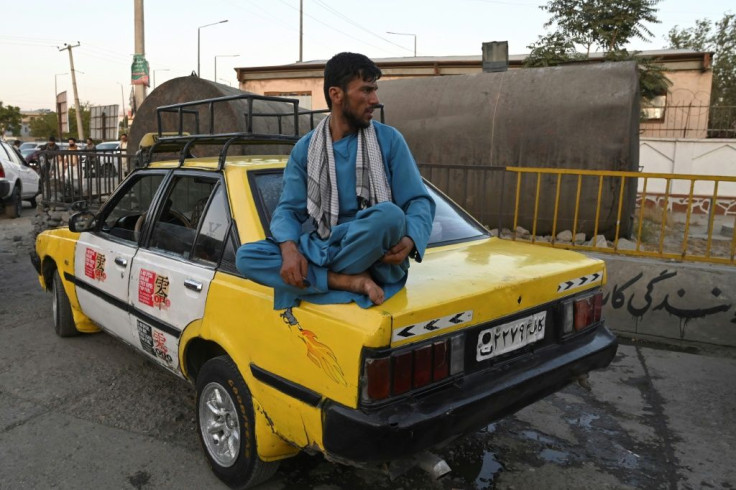
As the Taliban swept across more territory, the United States and United Kingdom moved to quickly pull out their embassy staff from the capital.
"We are further reducing our civilian footprint in Kabul in light of the evolving security situation," US State Department spokesman Ned Price told reporters, while noting the embassy would remain open.
The Pentagon said 3,000 US troops would be deployed to Kabul within the next 24 to 48 hours, underscoring that they would not be used for attacks on the Taliban.
UK Defence Secretary Ben Wallace said London would send 600 of its own troops to evacuate its nationals and "support the relocation of former Afghan staff who risked their lives serving alongside us".
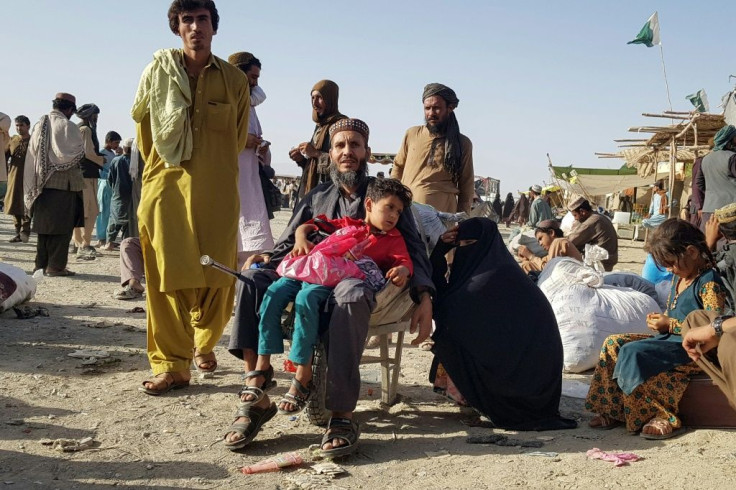
Price said the United States would also start sending in daily flights to evacuate Afghan interpreters and others who assisted the Americans and are fearful for their lives due to the Taliban's sweeping offensive.
After being under siege for weeks, government forces on Thursday pulled out of Herat -- an ancient silk road city near the Iranian border -- and retreated to a district army barracks.
"We had to leave the city in order to prevent further destruction," a senior security source from the city told AFP.
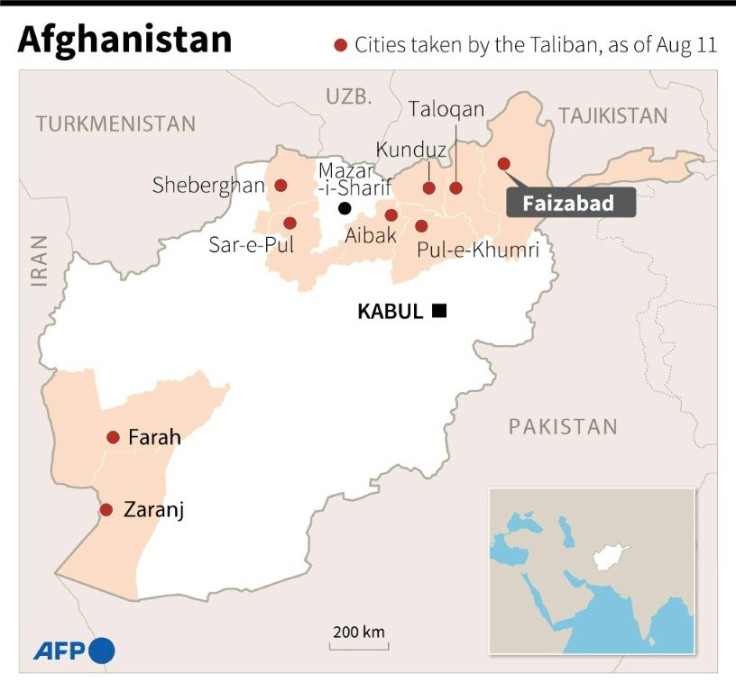
A Taliban spokesman, however, tweeted that "soldiers laid down their arms and joined the Mujahideen".
Earlier Thursday, the interior ministry confirmed the fall of Ghazni, about 150 kilometres (95 miles) from Kabul and along the major highway to Kandahar and the Taliban heartlands in the south.
"The enemy took control," spokesman Mirwais Stanikzai said in a message to media, adding later the city's governor had been arrested by Afghan security forces.
Pro-Taliban Twitter feeds showed a video of him being escorted out of Ghazni by Taliban fighters and sent on his way in a convoy, prompting speculation in the capital that the government was angered with how easily the provincial administration capitulated.
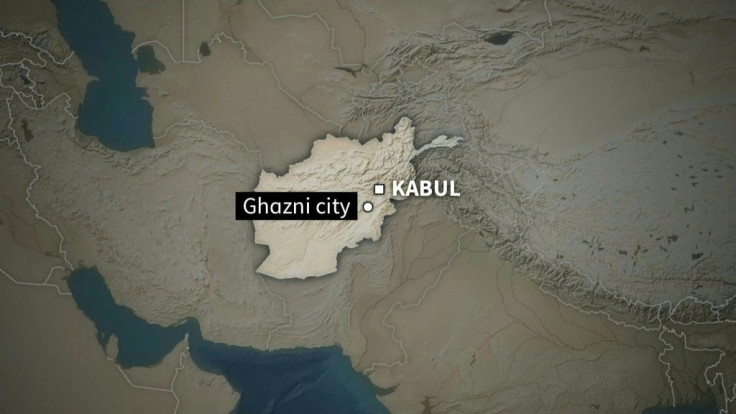
A security source told AFP that Qala-i-Naw, capital of Badghis province in the northwest, also capitulated on Thursday.
The province had agreed a ceasefire deal with the insurgents last month, but authorities have now yielded control, the source said.
In the end, Herat also fell with barely a fight.
"Right until this afternoon the situation in the city was normal," Herat resident Masoom Jan told AFP.
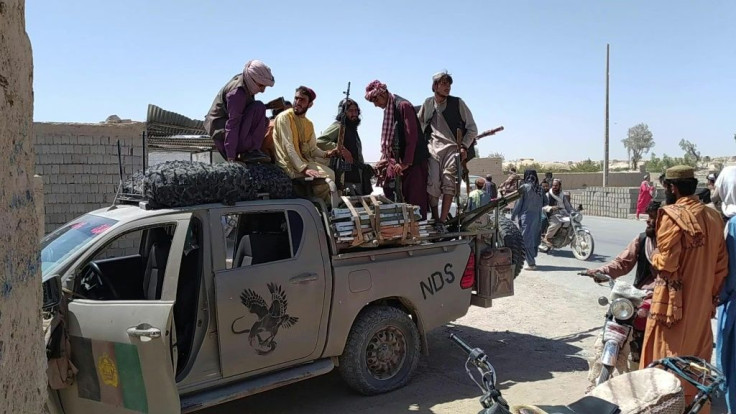
"Late afternoon everything changed. They (the Taliban) entered the city in rush. They raised their flags in every corner of the city."
As the rout unravelled, Kabul handed a proposal to Taliban negotiators in Qatar offering a power-sharing deal in return for an end to the fighting, according to a member of the government's team in Doha, who asked not to be named.
The conflict has escalated dramatically since May, when US-led forces began the final stage of a troop withdrawal due to end later this month following a 20-year occupation.
The loss of Herat and Ghazni piles more pressure on the country's already overstretched airforce, needed to bolster Afghanistan's scattered security forces, who have increasingly been cut off from reinforcements by road.
Pro-Taliban social media accounts also boasted of the vast spoils of war their fighters had recovered in recent days, posting photos of armoured vehicles, heavy weapons and even a drone seized by the insurgents at abandoned military bases.
In the past week, the insurgents have taken 12 provincial capitals and encircled the biggest city in the north, the traditional anti-Taliban bastion of Mazar-i-Sharif.
Fighting was also raging in Kandahar and Lashkar Gah -- pro-Taliban heartlands in the south.
An official in Lashkar Gah said Taliban fighters were inching closer to government positions after a massive car bomb badly damaged the city's police headquarters Wednesday evening.
Late Thursday, a security source told AFP government forces in Lashkar Gah were also considering evacuating to nearby Camp Bastion, one of the largest US bases in the country.
And in the country's second city of Kandahar, the Taliban said they had overrun the heavily fortified jail on Wednesday, adding that "hundreds of prisoners were released and taken to safety".
The Taliban frequently target prisons to release incarcerated fighters and replenish their ranks.
Kandahar, which has been besieged for weeks, was once the stronghold of the insurgents -- whose forces coalesced in the eponymously named province in the early 1990s -- and its capture would serve as both a tactical and psychological victory for the militants.
Hundreds of thousands have been displaced by the fighting that has enveloped the country.
© Copyright AFP 2024. All rights reserved.





















